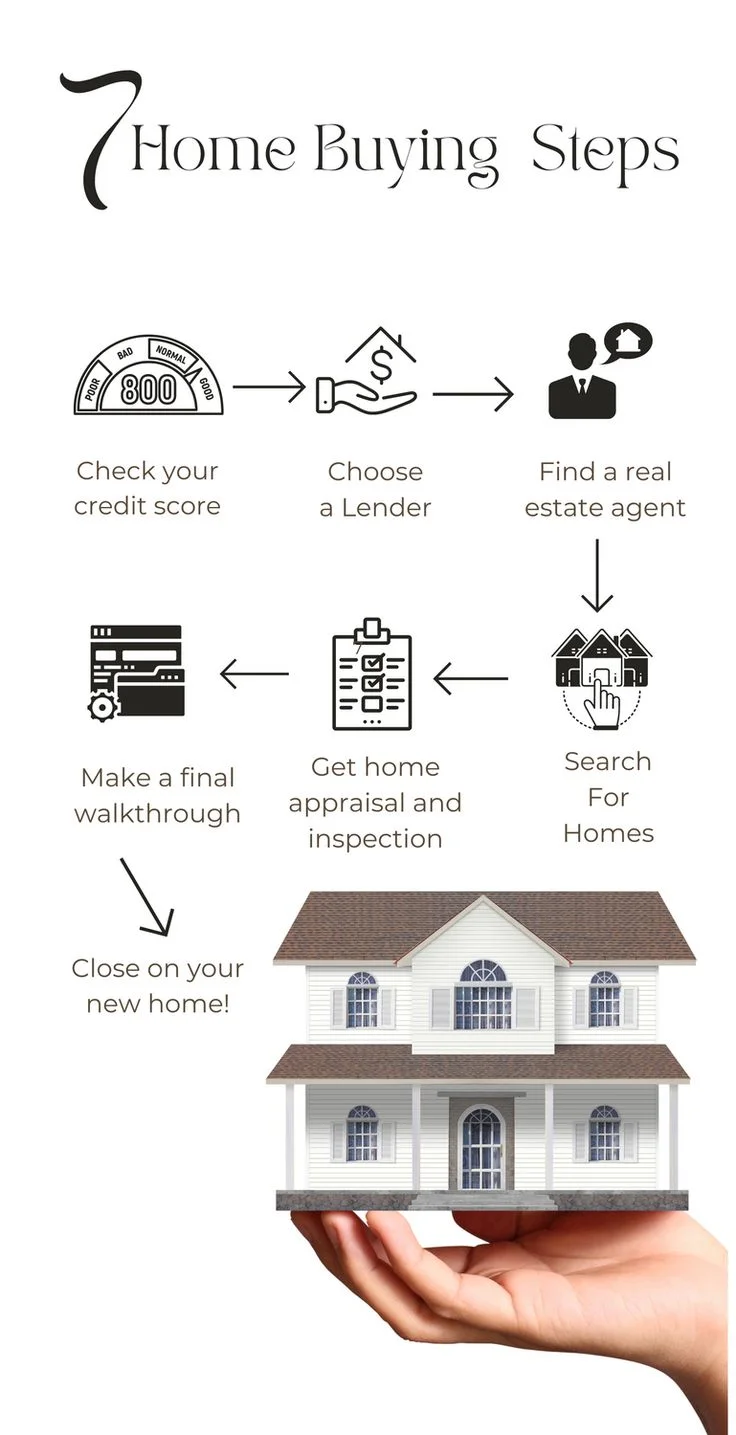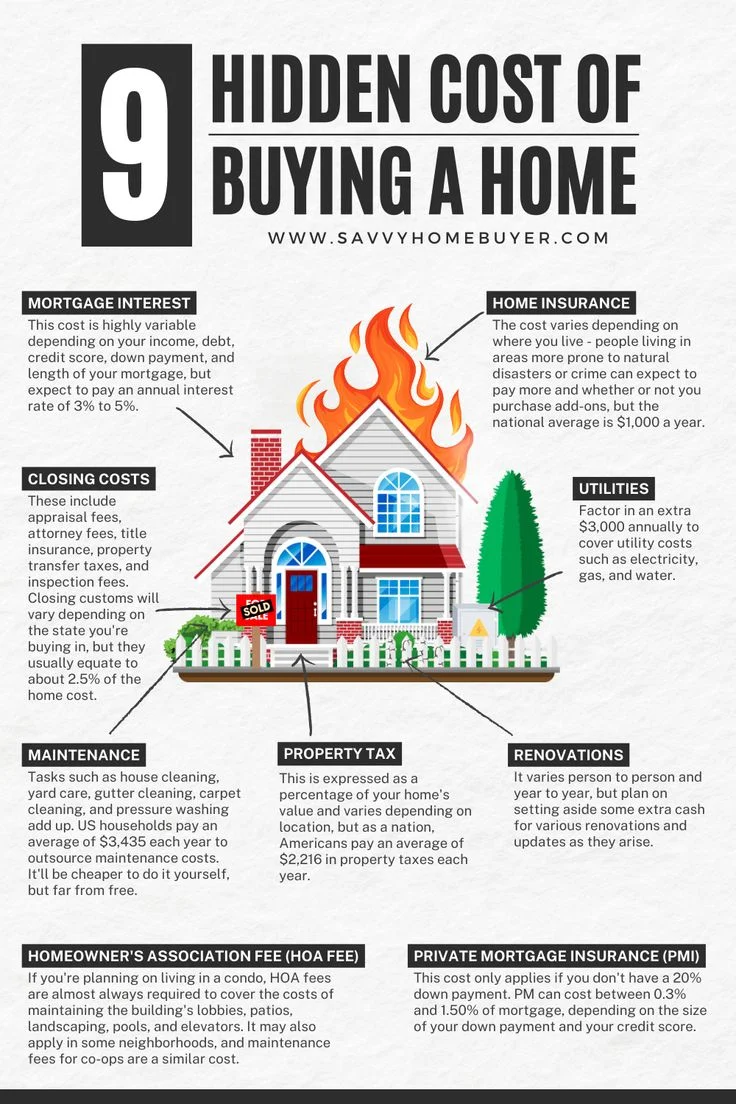Table of Content
▲- Check your credit score
- Check your affordability to buy
- Budget and save for a down payment
- Find out hidden cost
- Check your eligibility for a pre-approved home loan
- Consider private mortgage insurance (PMI)
- Talk to a financial advisor
- Address your debt
- Important questions to ask yourself before taking decision
Buying a house involves much more than simply saving for a down payment. It demands meticulous financial planning and preparation to ensure a smooth and successful purchase. This guide will walk you through essential steps to get financially ready for home buying, from managing your credit score to setting a budget and understanding mortgage options. By following these strategies, you can confidently navigate the complexities of real estate transactions and make informed decisions that align with your long-term financial goals.
Check your credit score
- Your credit score is crucial when buying a house. A higher score, typically above 670, allows you to secure better loans with lower interest rates.
- You can check your credit score for free online. It indicates how trustworthy you are with money and your likelihood of repaying loans.
- To boost your credit score, ensure you pay your bills on time every month. This demonstrates financial responsibility to lenders.
- Keep your credit card balances low. High balances relative to your credit limit can reduce your score. Aim to use less than 30% of your credit limit.
- Building a strong credit score takes time. Start early and be patient. A good score will make it easier to qualify for a mortgage and save on interest payments.

Check your affordability to buy
- Start by determining your monthly income. Then, add up your monthly expenses, including rent, groceries, and loan repayments.
- Next, assess your savings. This includes any funds saved for a down payment on a house and money set aside for unexpected expenses.
- Once you know your income, expenses, and savings, you can figure out how much you can afford to spend on a home. It's wise to keep your housing costs to no more than 30% of your monthly income. This includes your mortgage payments, property taxes, and home insurance.
- By carefully considering these factors, you can make a more informed decision about your home purchase.
Also Read: How To Reduce Home Loan Interest Rate In 2024?
Budget and save for a down payment
While a 20% down payment is generally preferred, there are programs available that allow for smaller down payments. To determine how much house you can comfortably afford, create a budget that includes potential maintenance costs, homeowners insurance, and monthly bills. This comprehensive approach will help ensure that you can manage all your financial responsibilities with ease.
Find out hidden cost
Hidden costs when buying a house can include property taxes, home insurance, closing costs (such as legal fees and registration charges), maintenance fees for amenities (if applicable), and potential repair costs for any issues discovered after purchase. It's crucial to budget for more than just the purchase price to avoid unexpected financial strain.

Check your eligibility for a pre-approved home loan
- When you find a home you like, check if you qualify for a pre-approved home loan. This means the bank has already reviewed your finances and is willing to lend you a specific amount.
- Being a salaried worker or having a good history with the bank might increase your chances of eligibility. This helps you understand your borrowing limit and monthly payments upfront.
- Getting pre-approved can simplify the home-buying process. It provides a clear idea of your financial boundaries and can speed up the purchase process.
Consider private mortgage insurance (PMI)
- If your down payment is less than 20% of the house's purchase price, you may need to pay for private mortgage insurance (PMI). This is an additional monthly expense added to your mortgage payment.
- PMI serves to protect the lender in case you are unable to make your mortgage payments. Typically, it's required until you've paid off enough of the loan or your home's value has increased sufficiently to achieve 20% equity.
- Include PMI in your financial calculations when determining how much you can comfortably afford each month for housing expenses. Understanding this cost upfront is crucial for planning your budget effectively.
Also Read: 7 Best Home Loan Apps in India
Talk to a financial advisor
A personalized plan created by a financial advisor can help you achieve your dream of homeownership. After evaluating your financial situation, they will recommend the best loan options for you. They can assist you at every stage of the home-buying process, from choosing the right loan to finalizing the documents. Having a financial advisor can reduce stress and simplify the home-buying process, ensuring you manage your money wisely throughout.
Address your debt
A high debt-to-income ratio (DTI) may affect your ability to get approved for a loan. Prioritize paying off debts with high interest rates and refrain from taking on new debt before purchasing a home.
Important questions to ask yourself before taking decision
Am I ready for the commitment?
Homeownership is a long-term commitment. Consider if your lifestyle aligns with staying put for a few years.
How long do I plan to stay?
If you foresee job changes or relocations in the near future, renting might be a better option.
What are my needs and wants in a home?
Make a list of your must-haves and nice-to-haves in terms of size, location, features (yard, garage etc.).
Is this the right neighbourhood for me?
Research the area’s safety, schools (if applicable), commute times, amenities, and overall vibe.
How’s the housing market?
Is it a buyer’s or seller’s market? Are home values stable or fluctuating?
Can I truly afford the ongoing costs?
Factor in property taxes, homeowner’s insurance, potential HOA fees, and maintenance costs on top of your mortgage payment.
Also Read: What exactly is the repo rate, and how does it affect the EMIs on your home loan?









_1771582392.webp)
_1771577585.webp)
Ans 1. 5. And then, get your finances readyStep 1: Save for the down payment. Your home loan can definitely make it easier for you to afford a house. ...Step 2: Shop around for the best home loan rates. ...Step 3: Pick a suitable loan repayment tenure. ...Step 4: Make room for your EMIs in your budget.
Ans 2. The average salary to buy a house should be around Rs. 9 lakhs. Salary is a crucial determinant of one's ability to buy a house, with higher incomes increasing affordability. In Mumbai, known for expensive real estate, an average salary of around 80% of the lowest flat price (approximately 15 lakhs) is needed.
Ans 3. This means the minimum down payment for home loans in India is 20%. If you're looking to buy a house worth one crore rupees, then you need to have a minimum of Rs. 20,00,000.00 as down payment ready.
Ans 4. As a thumb rule, the price of the house that you are looking to buy on a home loan should not be more than 5 times of your annual income. By doing so, you will be able to service the EMIs comfortably without stretching your household budget
Ans 5. After all, how much you earn dictates if and when you will be able to pay off a certain amount of home loan. To qualify for a PNB Housing home loan, you need to have a minimum gross monthly income of INR 15,000. This holds true whether you are a salaried individual or self-employed.